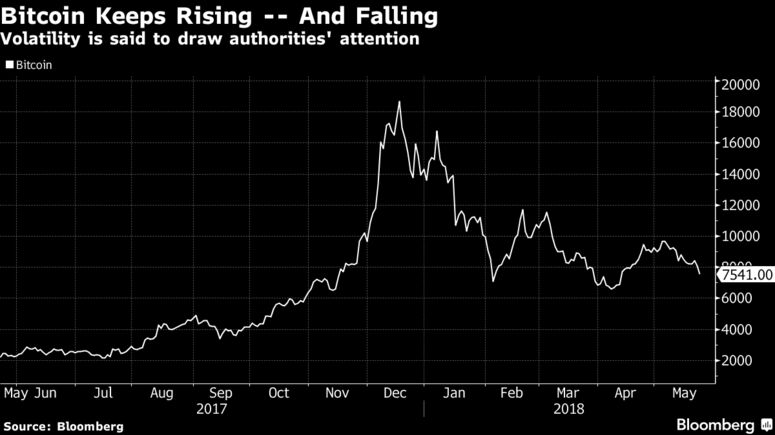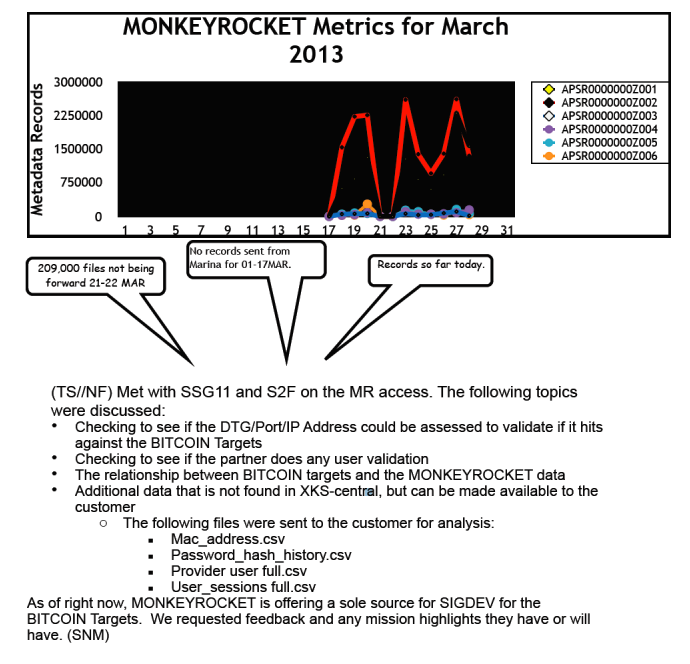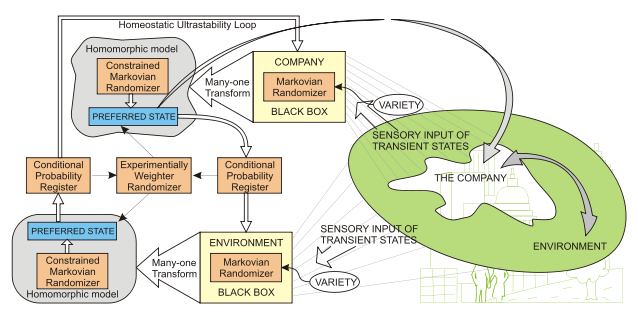The Justice Department has opened a criminal probe into whether traders are manipulating the price of Bitcoin and other digital currencies, dramatically ratcheting up U.S. scrutiny of red-hot markets that critics say are rife with misconduct, according to four people familiar with the matter.
The investigation is focused on illegal practices that can influence prices -- such as spoofing, or flooding the market with fake orders to trick other traders into buying or selling, said the people, who asked not to be identified because the review is private. Federal prosecutors are working with the Commodity Futures Trading Commission, a financial regulator that oversees derivatives tied to Bitcoin, the people said.

Authorities worry that virtual currencies are susceptible to fraud for multiple reasons: skepticism that all exchanges are actively pursuing cheaters, wild price swings that could make it easy to push valuations around and a lack of regulations like the ones that govern stocks and other assets.
Bitcoin extended its Thursday declines after Bloomberg News reported the investigation, and was down 3 percent to $7,409 as of 9:32 a.m. London time. It’s down more than 20 percent since a May 4 peak.
Such concerns have prompted China to ban cryptocurrency exchanges and nations including Japan and the Philippines to regulate them, contributing to a slump that has sent Bitcoin below $8,000 this year. Still, digital coins continue to be a global investment craze, drawing legions of loyalists to industry conferences, generating celebrity endorsements and increasingly attracting the attention of Wall Street.
Traders Colluding?
The illicit tactics that the Justice Department is looking into include spoofing and wash trading -- forms of cheating that regulators have spent years trying to root out of futures and equities markets, the people said. In spoofing, a trader submits a spate of orders and then cancels them once prices move in a desired direction. Wash trades involve a cheater trading with herself to give a false impression of market demand that lures other to dive in too. Coins prosecutors are examining include Bitcoin and Ether, the people said.
A Justice Department spokesman declined to comment and CFTC officials didn’t respond to requests for comment.
The investigation, which the people said is in its early stages, is the U.S.’s latest effort to crack down on an industry that was initially embraced by those who were distrustful of banks and government control over monetary policy.
But Bitcoin’s meteoric rise -- it surged to almost $20,000 in 2017 after starting the year below $1,000 -- has been a lure for mom-and-pop investors. That’s prompted regulators to grow concerned that people are jumping into cryptocurrencies without knowing the risks. For instance, the Securities and Exchange Commission has opened dozens of investigations into initial coin offerings, in which companies sell digital tokens that can be redeemed for goods and services, due to suspicions that many are scams.
Cryptocurrency trading is fragmented on dozens of platforms across the globe, and many aren’t registered with the CFTC or SEC. As a derivatives watchdog, the CFTC doesn’t regulate what’s known as the spot market for digital tokens -- which is the trading of actual coins rather than futures linked to them. But if the agency finds fraud in spot markets, it does have authority to impose sanctions.
Fraud Target
The limited oversight of crypto trading makes it a target for crooks, said John Griffin, a University of Texas finance professor who has studied manipulation, including in digital-coin markets.
“There’s very little monitoring of manipulative trading, spoofing and wash trading,” Griffin said. “It would be easy to spoof this market.”
Signs are emerging that some crypto exchanges realize the industry’s growth could be constrained if large swaths of investors conclude that trading platforms have a “buyer beware” approach to oversight.

Cameron and Tyler Winklevoss
Photographer: David Paul Morris
The Winklevoss twins, who are known for getting rich off Facebook Inc., hired Nasdaq Inc. last month to conduct surveillance of digital coins trading on their exchange, Gemini Trust Co. Cameron and Tyler Winklevoss have also urged trading platforms to band together to form a group that would serve as a self regulator for the industry.
Some market participants have alleged that crypto manipulation is rampant. Last year, a blogger flagged the actions of “Spoofy,” a nickname for a trader or group of traders that have allegedly placed $1 million orders without executing them.





